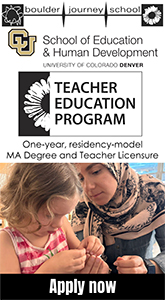March 19, 2024
Cultivating Unity: Conflict and Cooperation among Educators Shape Early Learning Environments
Life is a series of choices of which errors you prefer to make.
– Lilian Katz, speaking at the 2011 World Forum on Early Care and Education
Thanks to Exchange Leader Cigdem Unal, Director of the Office of Campus Child Care and Family Resources at University of Wisconsin, for sharing today’s message:
In early childhood education, conflict and cooperation play vital roles in shaping our programs. Handled with care, they transform classrooms into thriving environments where children and teachers flourish.
Conflicts, often seen negatively, extend beyond children’s interactions to disagreements among educators. These differences impact the work climate and program quality. Resolving conflicts is crucial; unresolved tensions hinder our ability to nurture children effectively. However, conflicts offer opportunities for growth. Engaging in tough conversations shows our commitment to our mission. Approaching discussions with openness fosters trust among educators. Modeling conflict resolution, empathy, and collaboration strengthens our programs, promoting emotional intelligence and social learning.
Cooperation among educators, fostered through positive conflict resolution, sets a powerful example for children. It teaches them teamwork, listening, and valuing diverse perspectives. This enriches our learning communities, creating safe spaces where everybody feels valued. Embracing conflict and cooperation improves our programs, showing children how disagreements can lead to understanding.
Let’s face conflicts courageously, engage in growth-oriented conversations, and foster cooperation daily. Together, we cultivate and contribute to a kinder world, one child and educator at a time.
Share with the hashtag #ExchangeEveryDay
Print Friendly












